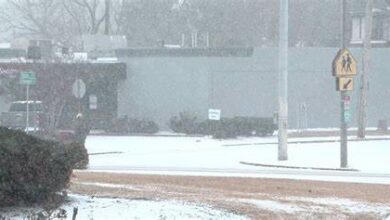At 2 million jabs so far, New Zealand treads a slow road to inoculation

By Rocio Otoya
Sydney, Australia, Aug 5 (EFE).- New Zealand has passed the milestone of two million anti-coronavirus vaccine jabs even as the country that successfully fought the virus outbreak is on a slow path to inoculate its more than five million people.
Official data published Thursday showed that health workers have fully inoculated 782,600 people or less than 17 percent of its eligible population.
Nearly 1.3 million have received their first jabs of Pfizer vaccine dozes, the health ministry data showed.
Though the Kiwis seem to be pretty okay with the vaccine strategy, Alex Gillespie, a legal expert from the University of Waikato, says it would not work too long for the government.
“Waiting patiently worked because of the good management of the borders. Had there been an outbreak, and a largely unvaccinated population, it would have been a disaster for the government,” Gillespie told EFE in an email response.
New Zealand has kept its borders closed since March 2020. The government has strictly confined any outbreak.
The country has accumulated 2,524 infections, including 26 deaths since the pandemic began.
Australia and Fiji, which managed to keep the virus under control for much of the pandemic, are racing against time to immunize their populations after two outbreaks of the highly infectious Delta variant of the coronavirus.
The government of Prime Minister Jacinda Ardern began the vaccination campaign on Feb.20 with the Pfizer vaccine. Workers at border posts were the first to get vaccines.
From July 28, the government began immunizing the general population of over 60 years as part of a schedule that will conclude with 16-year-olds.
While designing its vaccination strategy, New Zealand considered the high global demand for vaccines that caused supply shortages last year.
The government calculated that the highest number of doses would arrive in the country in the middle of 2021.
Some countries authorized the emergency use of vaccines before the clinical evaluations.
That was because they battle community transmission of Covid-19 and high mortality rates, unlike in New Zealand.
A health ministry spokesperson told EFE that the plan also considered that only some minor outbreaks occurred in New Zealand due to the closure of its international borders in March last year.
New Zealand Covid-19 Response Minister Chris Hipkins said last month that the vaccine roll-out program was an “ongoing, yearlong marathon.”
However, in the second term of Ardern, the Labor government has suffered two consecutive drops in popularity reported in July and August.
It opens the possibility that the long Covid-19 honeymoon may be over for Ardern.
The government confidence is down, and support for the Labour-led administration is at its lowest since October 2017, consulting firm Roy Morgan said.





